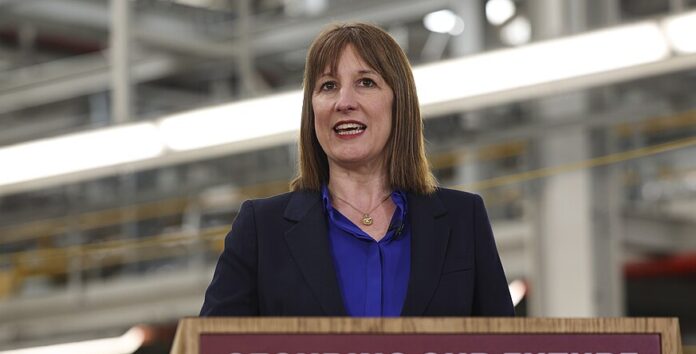Chancellor’s £39bn housing plan promises decade-long boom in social and affordable homebuilding.
Rachel Reeves will unveil a landmark £39bn boost for affordable housing, promising the biggest government investment in social homes for a generation. The chancellor’s long-awaited spending review will deliver a major shot in the arm for housebuilding, aiming to put the government back on track to hit its 1.5 million homes target.
The plan will nearly double previous funding levels, unlocking billions in grants for local authorities, housing associations, and private developers over the next decade. In a move welcomed by the sector, Reeves will also allow social landlords to increase rents by 1% above inflation for the same period.
“This government is renewing Britain,” Reeves will tell MPs. “But I know too many people in too many parts of the country are yet to feel it. My task is to ensure that renewal is felt in people’s everyday lives, their jobs, their communities.”
Embed from Getty ImagesA government insider described the plan as “the biggest boost to social and affordable housing investment in a generation,” signalling a major escalation in Labour’s mission to tackle the housing crisis.
Angela Rayner’s housing department emerged as one of the major winners of tense negotiations with the Treasury. After weeks of fraught discussions, Rayner secured the funding uplift just days before the spending review was finalised. According to insiders, she had insisted on speaking directly with Reeves after hitting deadlock with Treasury deputy Darren Jones.
Rayner’s breakthrough follows warnings that the government risked falling far short of its housing goals. A recent Savills report concluded ministers were significantly behind schedule, intensifying pressure on Rayner to secure more funding. Without it, the 1.5 million homes pledge looked increasingly shaky.
The £39bn package will cover the decade from 2026 to 2036, dwarfing the £11.8bn allocated by the previous government for a five-year period. Reeves will fund the uplift through £113bn of additional capital spending, enabled by revised borrowing rules introduced earlier this year.
Housing associations will also be able to purchase thousands of unsold affordable units built by private developers but left empty due to lack of funding. Industry leaders praised the move as a long-overdue intervention.
Kate Henderson, chief executive of the National Housing Federation, called it “the most ambitious affordable homes programme in decades” and a “transformational package for social housing”. Shelter’s Mairi MacRae echoed the praise, calling it “a watershed moment” and “a huge opportunity to reverse decades of neglect.”
The spending review will also include £15.6bn for local transport projects and £14.2bn to fund the new Sizewell C nuclear power plant.
Rayner’s settlement was reached shortly before Home Secretary Yvette Cooper agreed to a deal that could lead to cuts in police numbers. Cooper, Rayner, and Energy Secretary Ed Miliband all faced difficult talks as Reeves capped departmental spending at just 1.2% above inflation. Miliband reportedly stormed out of one session with Jones amid frustration over tight spending limits.
The housing package comes as Labour also pushes through sweeping reforms to planning laws. The government’s Planning Bill cleared its third reading in the Commons on Monday, removing many restrictions on previously protected sites. Ministers say the changes are essential to speed up development and meet housing demand, but environmental groups warn they threaten sensitive habitats.
Several Labour MPs privately lobbied the Treasury to ensure Rayner’s department resisted pressure for tighter environmental safeguards.
Separately, Rayner also announced plans to repeal the 200-year-old Vagrancy Act, which criminalises rough sleeping. Campaigners hailed the move, saying it could prevent hundreds of homeless people from being arrested simply for sleeping on the streets.
The Vagrancy Act will be scrapped within a year, delivering what Rayner described as “basic dignity” to vulnerable people
